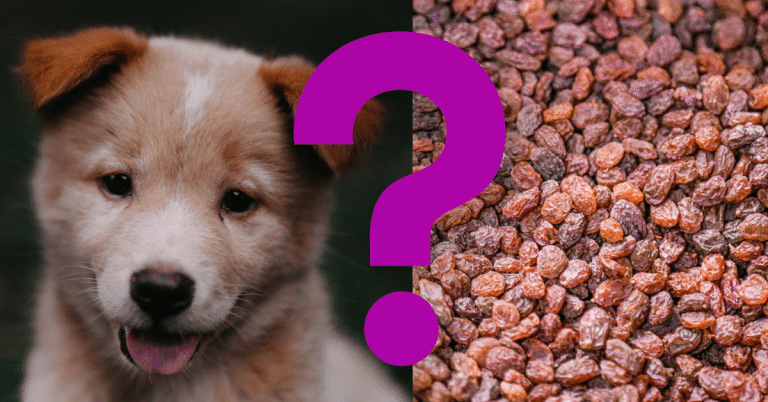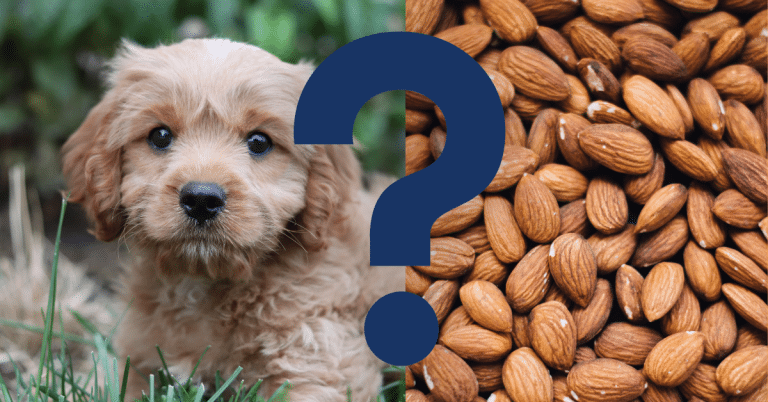Can Dogs Eat Baby Food? A Vet’s Opinion

Baby food is soft and mashed food commonly designed for infants and young children, but can you feed baby food to your dog?
Yes, dogs can consume certain types of baby food. Look for plain varieties with no added spices, seasonings, or artificial sweeteners. Please ensure they’re low in salt and don’t include onion or garlic, which can poison dogs. However, it is crucial to remember that baby food should not be used in the long run instead of a balanced dog diet because it may lack essential nutrients. Before integrating baby food into your dog’s diet, consult a veterinarian to confirm it is safe and suited for their unique needs.
Benefits Of Baby Food For Dogs
While baby food may be used as a special treat on occasion or as a temporary solution in specific cases, it should not be used in place of a balanced canine diet. Here are some potential advantages and disadvantages of using baby food for dogs:
Easy To Eat
Baby food is typically soft and mashed, making it more straightforward for dogs with dental concerns, missing teeth, or chewing difficulty.
Flavorful
A broad selection of flavors is available in baby food, allowing you to introduce various flavors to your dog’s diet. It may be helpful if your dog is switching to solid food or has certain dietary limitations.
Vitamins And Minerals
Some infant meals may contain vitamins and minerals that might provide additional nutrition to dogs, particularly if they have specific dietary limitations or are recuperating from sickness.
Hydration
Certain infant foods, such as pureed fruits and vegetables, have high water content and can help keep dogs hydrated, especially in hot weather or for dogs with trouble drinking enough water.
Remember that a balanced and comprehensive dog food designed exclusively for dogs is the most excellent option for meeting their dietary needs. Baby food should be used sparingly and only under the supervision of a veterinary specialist.

How To Safely Give Baby Food To Dogs
It is critical to follow specific recommendations when feeding baby food to dogs to ensure their well-being and security. Here’s how to introduce baby food into your dog’s diet safely:
Consult Your Veterinarian
Before giving your dog baby food, consult with your veterinarian. They can make recommendations based on your dog’s specific demands, health issues, and dietary needs.
Select Proper Baby Food
Choose simple infant food with no extra spices, condiments, or artificial sweeteners. Look for low-sodium options and avoid those with onion or garlic, which can be hazardous to dogs.
Analyze The Labels
Always check the labels on baby food jars or containers for any additives that could be hazardous to dogs. Check the contents list for chemicals, preservatives, and excessive salt content.
Begin With Small Quantities
When introducing baby food to your dog, begin with small pieces to gauge their reaction and any potential digestive concerns. Watch for symptoms of allergies or bad reactions, such as vomiting or diarrhea.
Combine With Usual Dog Food
Baby food should not be used in place of a well-balanced canine diet. Instead, use it as a topping or mixer for your dog’s everyday food. It can add variation while also improving palatability. To ensure a smooth transition, gradually blend increasing quantities of baby food into your dog’s meal over many days.
Calorie Consumption Should Be Monitored
Baby food may include fewer calories than conventional dog food. Ensure that adding baby food does not result in overfeeding or an imbalanced diet. Monitor your dog’s weight and modify portion quantities as needed.
Avoid Relying On Baby Food In The Long Term
Baby food is not specifically designed to meet the nutritional demands of dogs. It should only be taken as a short-term fix or as an occasional pleasure. Supplying balanced nutritious dog food prescribed by your veterinarian for long-term feeding is critical.
Store Safely
Follow the manufacturer’s recommendations when storing any unused baby food. Refrigerate it to keep it fresh and prevent spoiling.

Assess Your Dog’s Health Regularly
As you introduce baby food or any new food into your dog’s diet, keep an eye on their overall health and well-being. Consult your veterinarian immediately if you observe any appetite, digestion, or behavior changes.
Remember that each dog is unique, and their nutritional requirements may differ. Always seek the advice of your veterinarian to ensure that you provide the healthiest and safest nutritional options for your pet.
Will Baby Food Make A Dog Sick?
Feeding your dog baby food can be risky if you’re not careful. Although some types of baby food are safe for dogs, others can contain dangerous ingredients. Foods with onion or garlic, artificial sweeteners like xylitol, or high sodium levels can harm our furry friends. Additionally, baby food doesn’t provide all the nutrients dogs need, so it shouldn’t be their primary food source. Dogs require a balanced diet of protein, fat, carbohydrates, vitamins, and minerals.
Furthermore, abrupt dietary changes, such as adding baby food, can induce gastrointestinal upset in particular dogs, resulting in vomiting, diarrhea, or abdominal discomfort. Before giving your dog baby food, contact a veterinarian to avoid any potential problems. They can advise you on appropriate baby food selections and portions and confirm that the contents are healthy for your dog to eat based on their age, health condition, and nutritional needs.
Can dogs eat baby food variations?
Yes, dogs can eat specific types of baby food, but it is essential to be careful and choose the appropriate options. Here are some factors to consider:
Plain and unseasoned baby food: Dogs can eat plain and unseasoned baby food kinds that do not have any additional spices, seasonings, or artificial sweeteners. Look for pureed fruits, veggies, or meats that include simply the main ingredient.
Fruits and veggies: Many vegetables and fruits in baby food are suitable for dogs. Some examples are pureed apples, bananas, mashed sweet potatoes, carrots, beans, and peas. These can supplement a dog’s diet with additional minerals and fiber.
Meat-based baby food: Some baby food jars contain pureed meats such as chicken, beef, or turkey. These can be useful for dogs that have difficulties chewing or require a softer texture owing to dental issues.
To ensure your baby’s safety, carefully read the labels on infant food containers and avoid any products that contain harmful ingredients. Look out for onion, garlic, artificial sweeteners such as xylitol, high levels of sodium, or any other potentially dangerous additives
. Baby food should be given to dogs in moderation and as part of a well-balanced diet. It should be used in a different place than their usual dog food. Use baby food as a treat, topping, or supplement to add variety.
Vet’s Summary
Summary: Dogs can be fed baby food if suitable variants are used, and certain safeguards are observed. Pureed vegetables, fruits, meats, and plain and unseasoned baby food can be safe options for dogs. However, hazardous additives such as onion, garlic cloves, artificial sweeteners, and high sodium levels must be avoided. Baby food should only be given in moderation as a supplement or treat, not as a replacement for a well-balanced canine diet. A veterinarian should be consulted to confirm that the baby food varieties chosen are safe and suitable for the individual dog.
Recommendation: Consider giving them probiotic pills to improve your dog’s health. Probiotics can help boost their immune system and promote a healthy gut. It’s important to talk to a veterinarian before giving your dog any supplements, as they can recommend a specific probiotic supplement based on your dog’s individual needs and provide guidance on how much to give them. It’s also crucial to feed your dog a balanced diet and follow your vet’s instructions to see the best results.
Videos To Watch
If you are wondering if you can give your dog baby food, watch this:
And if you want to know what a dog can NOT eat, watch this:






